Reciprocal Bargaining: The Best Hope for Denuclearization
Newsletter article — 21 March 2012
“Reciprocal Bargaining: The Best Hope for Denuclearization” by David Cortright and Linda Gerber-Stellingwerf, Peace Policy, 21 March 2012.
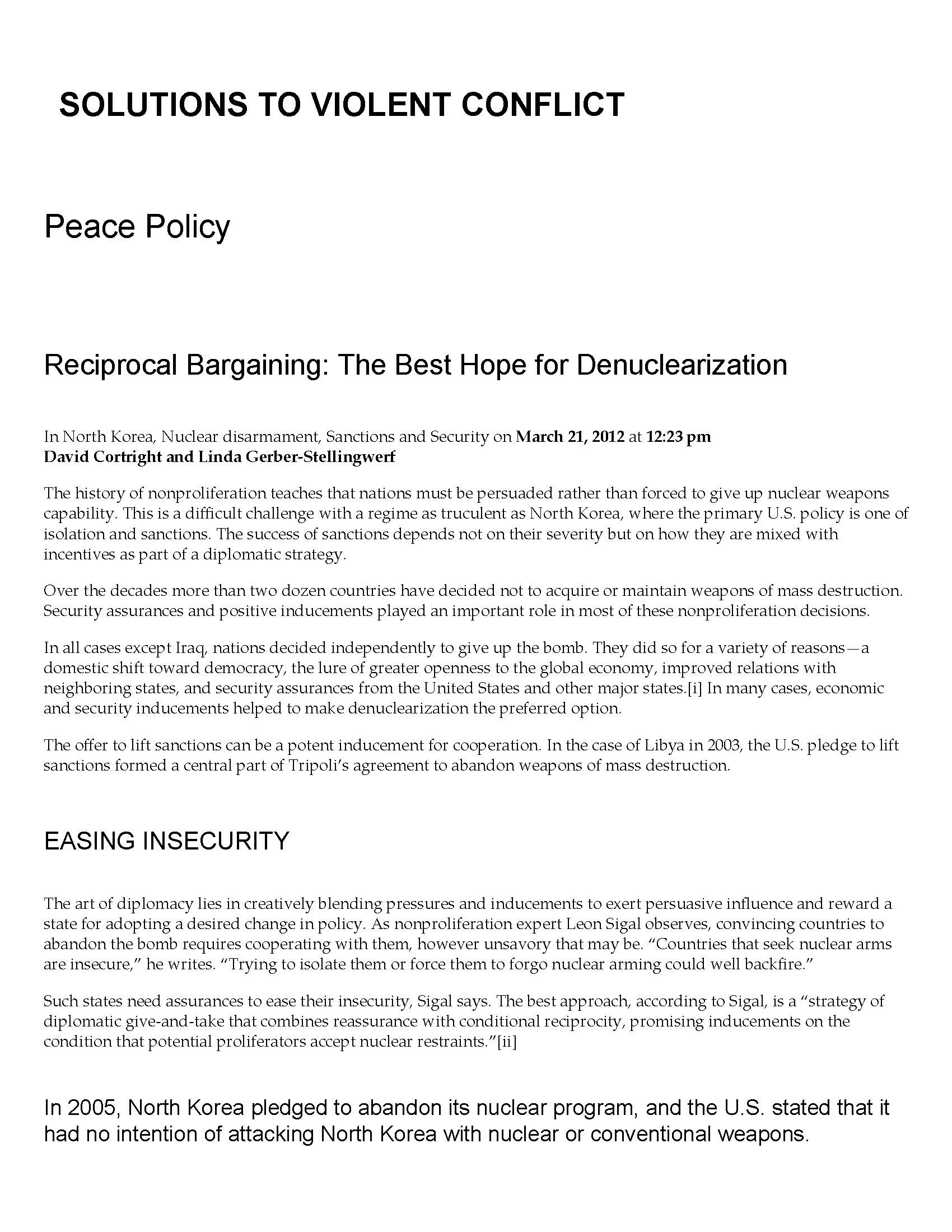
“Reciprocal Bargaining: The Best Hope for Denuclearization” by David Cortright and Linda Gerber-Stellingwerf, Peace Policy, 21 March 2012.

“Failed Sanctions on Iran,” by David Cortright, Foreign Policy in Focus, 2 February 2012.
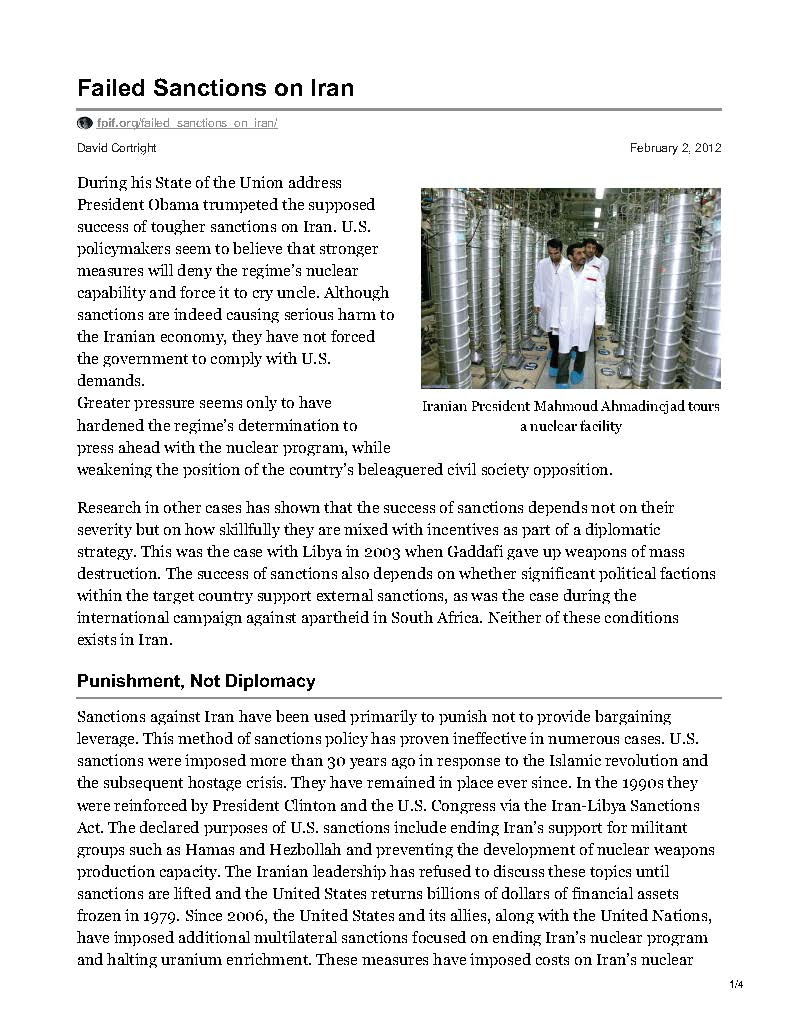
Book chapter — 2011
“Sanctions as Alternatives to War” by George A. Lopez and David Cortright, in The Handbook on the Political Economy of War, edited by Christopher J. Coyne and Rachel L. Mathers (Edward Elger Publishing, 2011) pp. 534-570.

This study examines the challenges of integrating Security Council sanctions with other forms of international policymaking. It proposes options for the UN Secretary-General, the Security Council, and the Secretariat to enhance implementation and coordination capabilities. It proposes the creation of a UN Sanctions Implementation Task Force, greater staff support for sanctions coordination within the Secretariat, improved guidance for cooperation between panels of experts and UN missions in the field, and greater information sharing and dissemination across all UN agencies and offices.
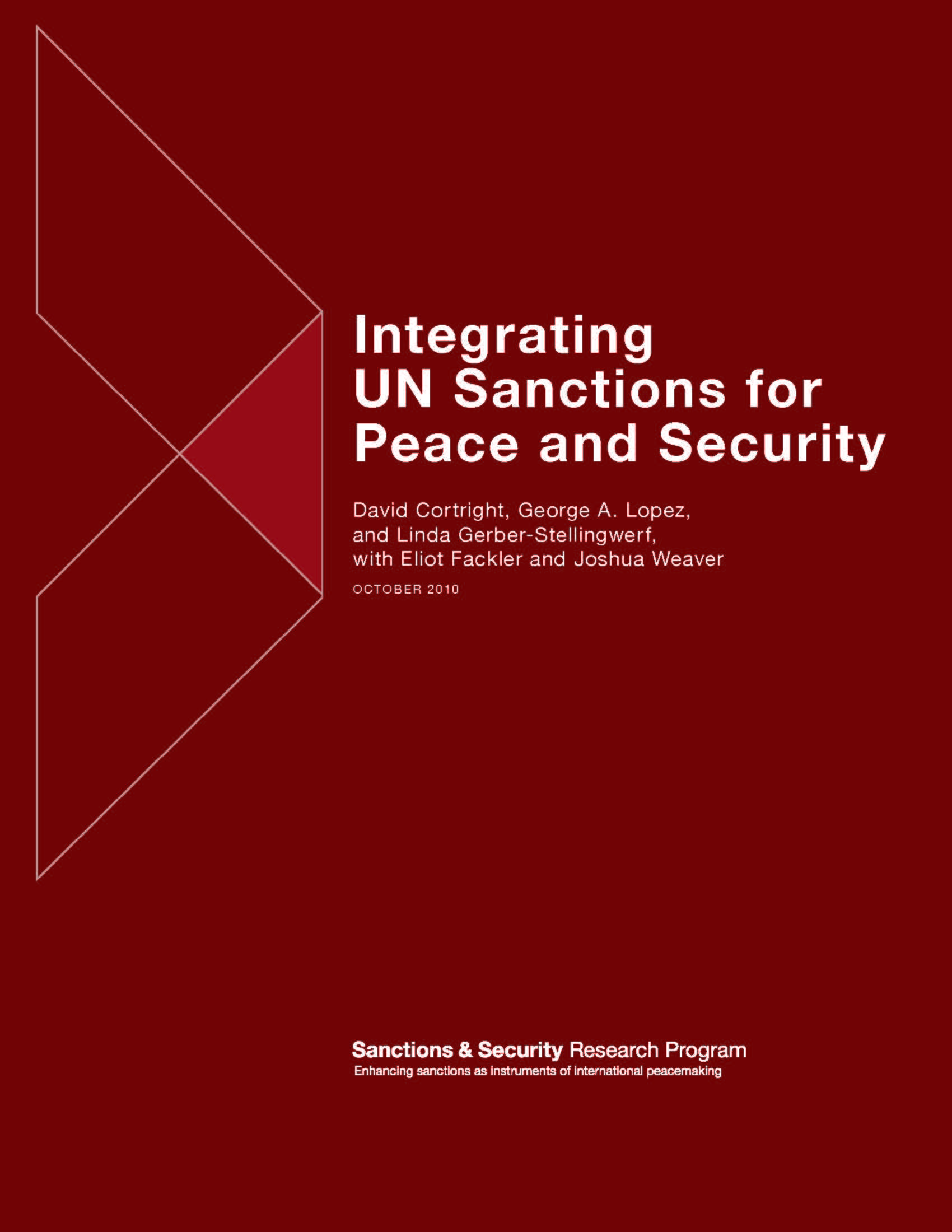
“Stalemate: A Short History of Sanctions Against Iran” by Linda Gerber-Stellingwerf, Peace Policy, 26 January 2010.
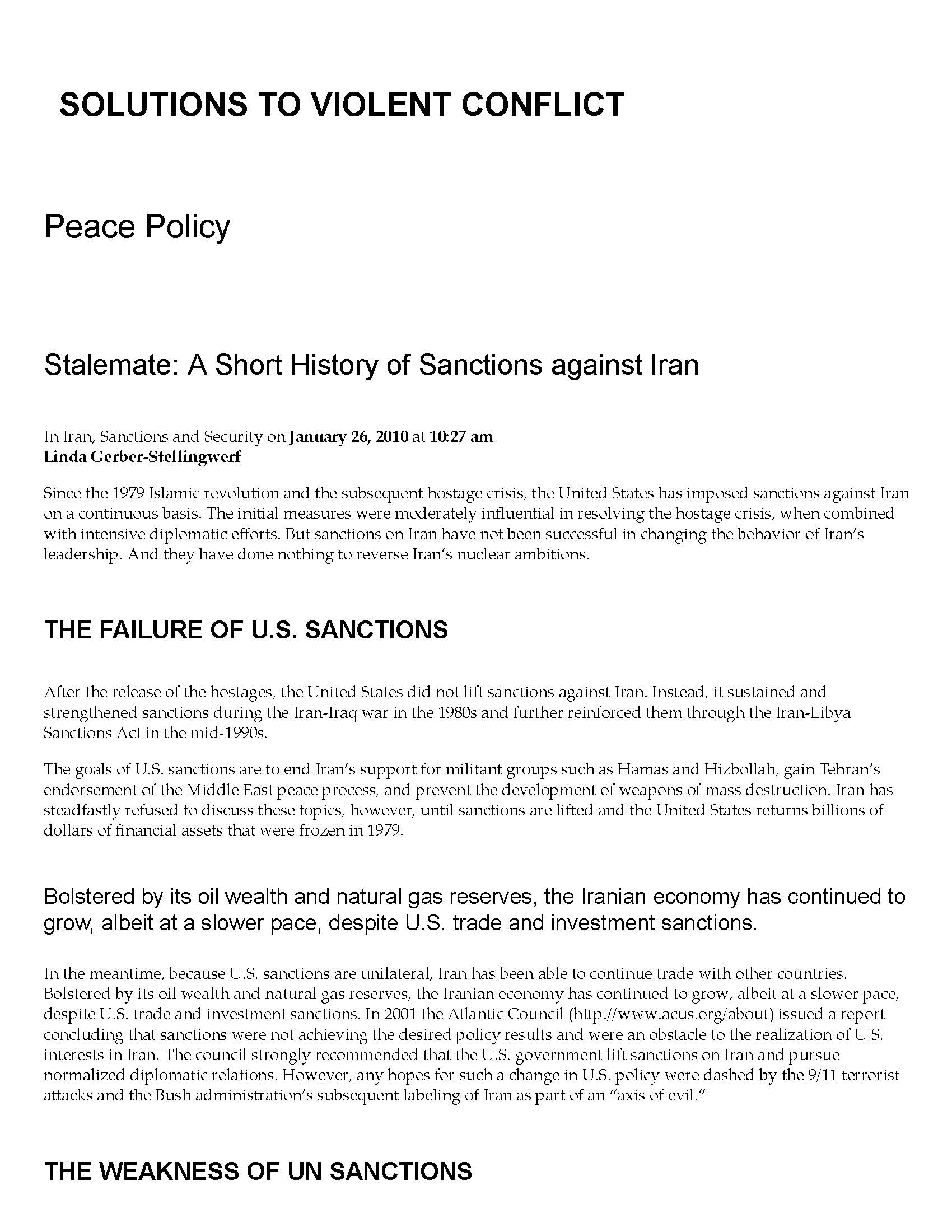
Legal scholar Erika de Wet and sanctions expert David Cortright team up to analyze the core principles of international human rights law in relation to the procedures for the imposition of targeted sanctions by the UN Security Council and the European Union. They conclude that while UN and EU listing and delisting procedures have improved in recent years, they still fall short of guaranteeing fundamental legal rights.
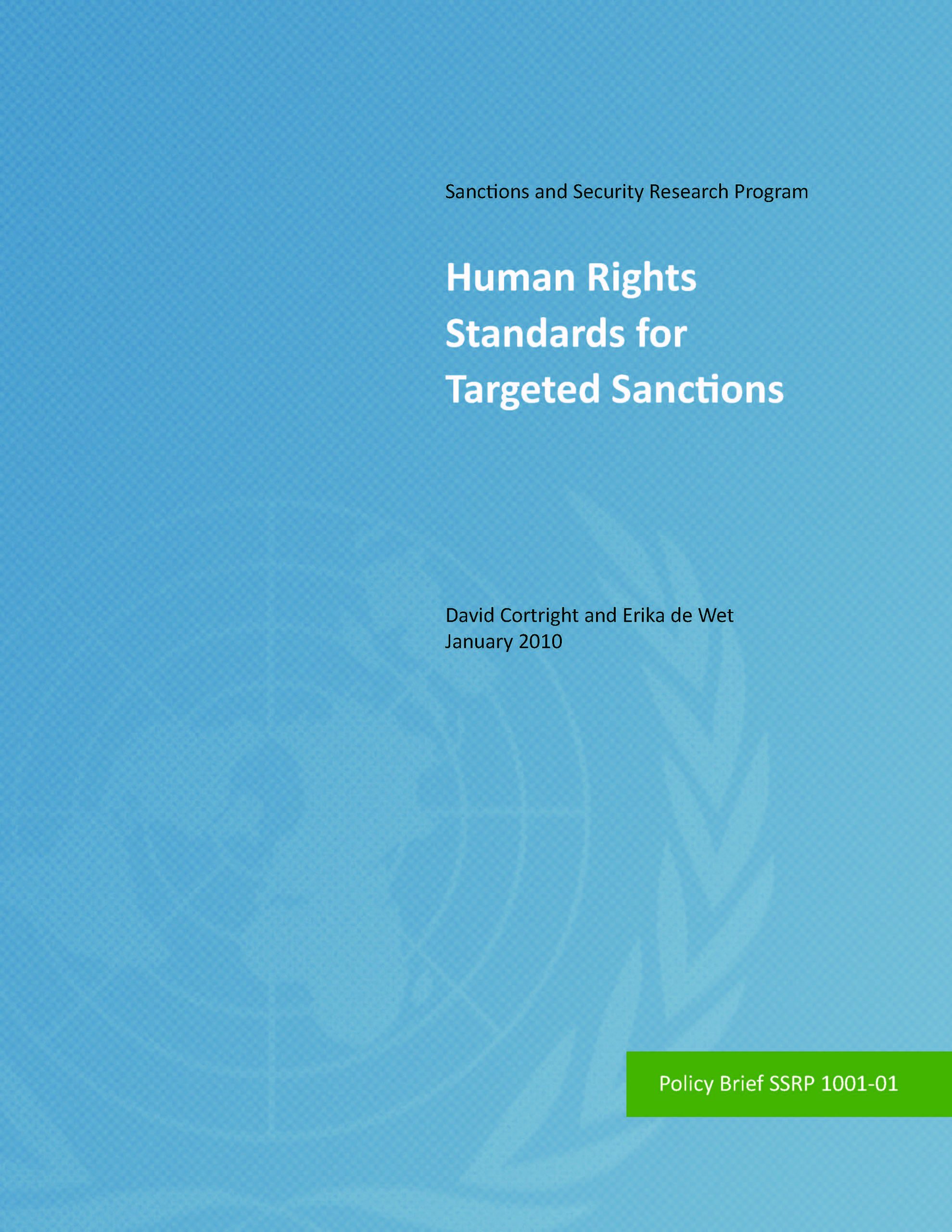
It is widely assumed that concerns about due process rights in listing and delisting procedures have impeded compliance with targeted sanctions against Al-Qaida and the Taliban. While most governments regard UN sanctions as essential tools in the fight against global terrorism and consider them among the most important instruments available to the Security Council, a growing number of states are concerned about flaws in the listing and delisting process. This paper examines designation patterns in sanctions targeting to determine if due process concerns are impeding the willingness of states to implement these measures.
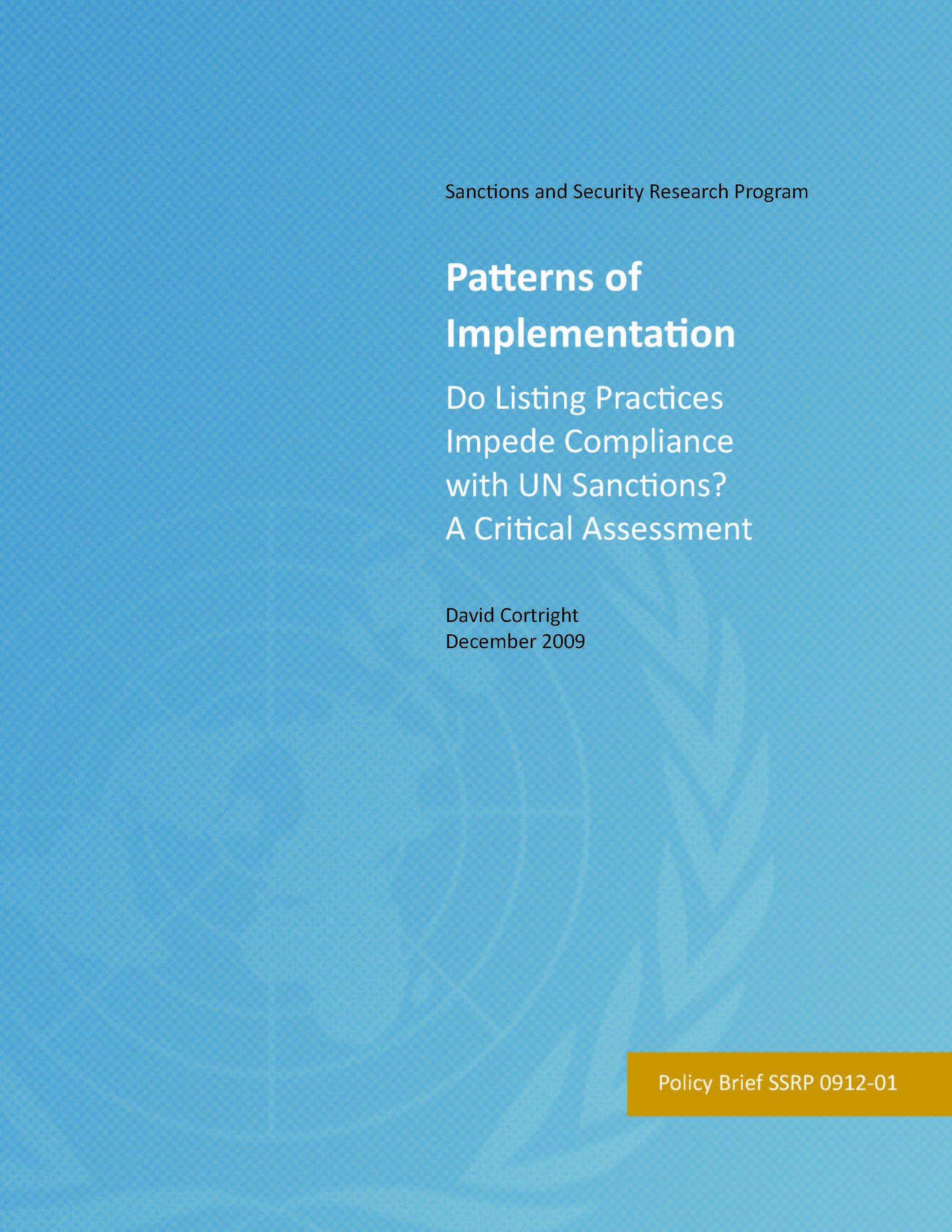
This paper examines various policy reform options to improve listing and delisting procedures. It begins by evaluating reform efforts to date, and the work of the Focal Point. This is followed by an examination of options for improving information gathering and sharing through greater utilization of the Monitoring Team and Focal Point. The paper concludes with a summary of recommendations.
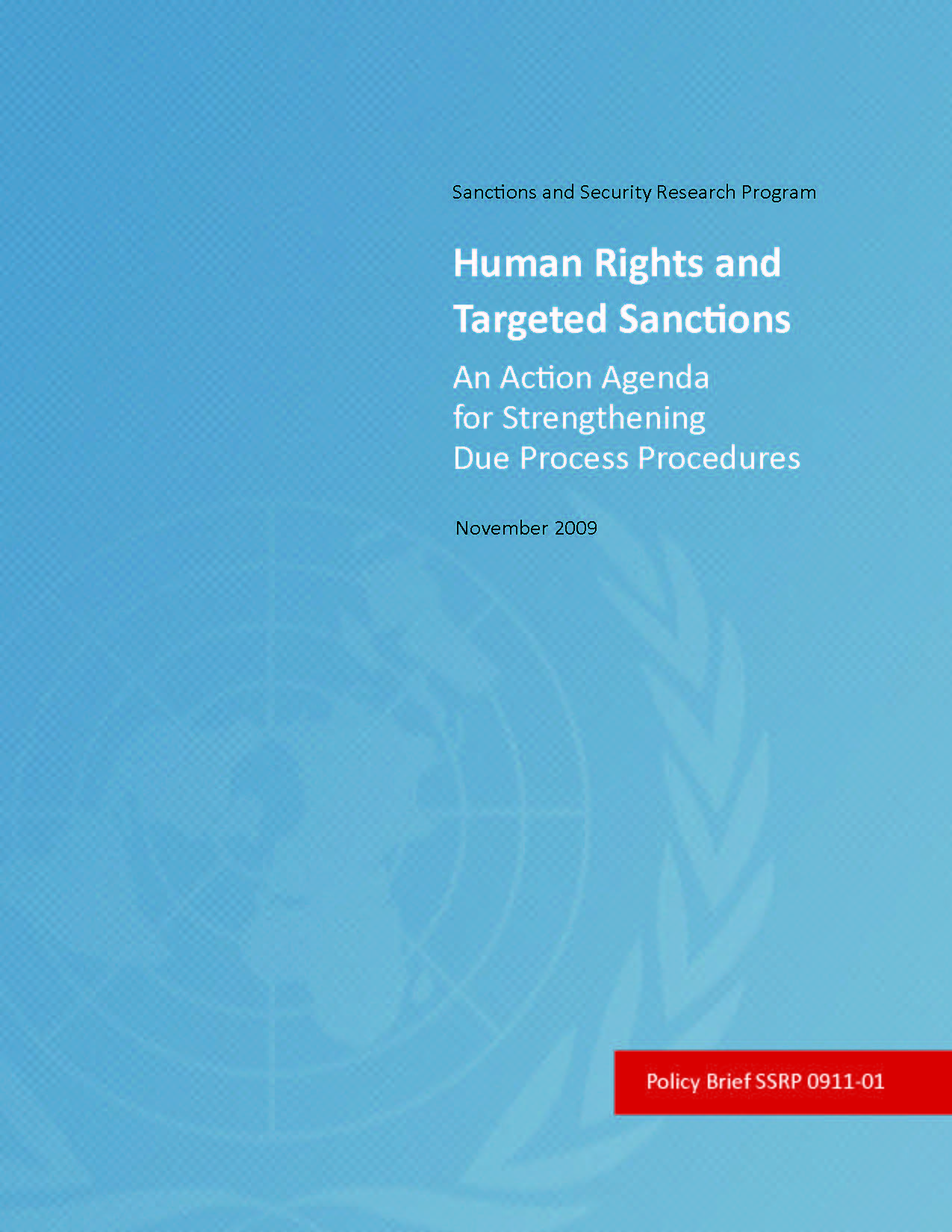
This paper highlights the importance of providing due process and respecting other fundamental human rights when countering terrorism and offers a set of recommendations for civil society organizations to consider in their efforts to support and sustain human rights as priority rather than postscript for measures to enhance security.
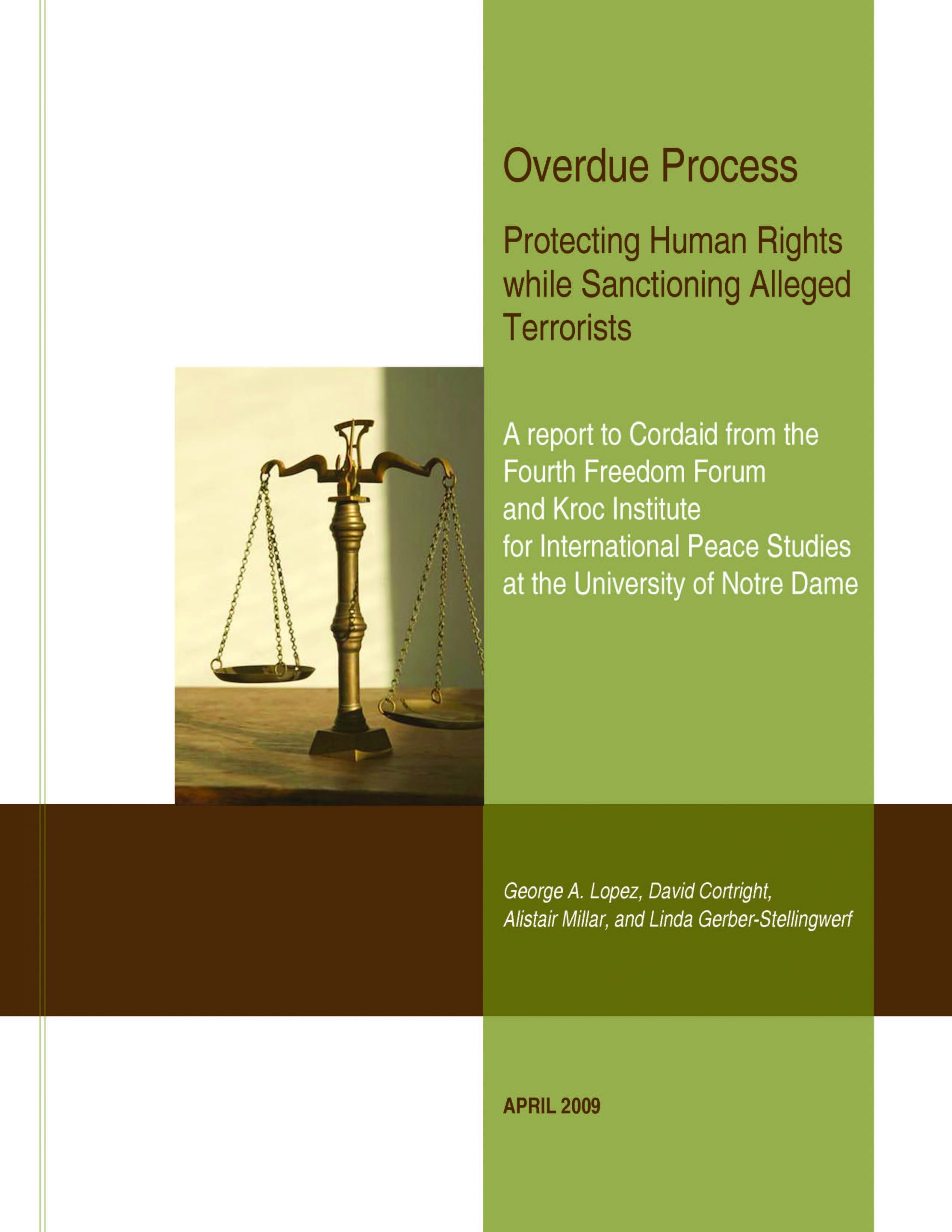
“United Nations Sanctions and Nuclear Weapons” by George A. Lopez and David Cortright, in The United Nations and Nuclear Orders, edited by Jane Boulden, Ramesh Thakur, and Thomas Weiss (United Nations University Press, 2009) pp. 111-131.
